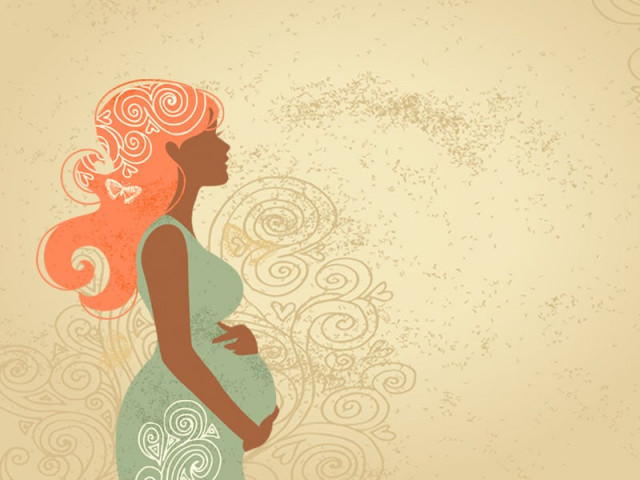‘Over 5,000 women die in or after pregnancy each year’
Expert cites lack of awareness, inadequate political support as reasons for deaths.

Every year some 5,400 women during or soon after pregnancy and some 63,200 infants (under the age of one) die in the Punjab. Another 34,000 children (between one to five-years of age) also die.
These figures were presented by Dr Zulfiqar A Bhutta, a professor and the founding chair of the Division of Women and Child Health at the Agha Khan University, at a seminar on Reproductive, Maternal, Newborn and Child Health (RMNCH).
Dr Bhutta said that the number of such deaths could be brought down by 67 per cent in five-years with the enthusiasm like that shown in the dengue eradication efforts.
Dr Bhutta believes that the lack of awareness and inadequate political support hamper the efforts to meet Millennium Development Goals. Political will is therefore essential to make maternal and child health a national priority, he said. Although promising changes in Punjab regarding ante-natal care and skilled attendance had been achieved, he said, there was much more that needed to be done.
This was the third in a series of seminars on RMNCH organised by Aga Khan University’s Division of Women and Child Health with the support of United States Agency for International Development (USAID).
Dr Bhutta outlined Pakistan’s challenges in the field of maternal, newborn and child health.
“With concerted efforts . . . , over two-thirds of the maternal, newborn and child deaths can be avoided,” he said while charting opportunities for scaling up activities in the province and implementing key evidence-based solutions. “Perhaps it’s time our policy makers diverted some attention and resources towards maternal and child health,” Dr Bhutta added.
He said the country’s basic health system needed to be improved in order to provide quality health care. “The Lady Health Worker programme was established as a temporary programme and not as a replacement for the health care system. However, the fact is that it has partially become so,” Dr Bhutta said, adding that according to the National Nutrition Survey 2010-2011, women’s health, appropriate birth spacing and nutrition are key drivers to reduce newborn and infant deaths in Pakistan.
Dr Samia Malik of the King Edward Medical University said that health care facilities in the Punjab were highly inadequate given the province’s rapidly growing population which currently stood at 72 million. “High fertility rates and low contraceptive use are just some of the great challenges. Unless significant attention and resources are extended the situation will aggravate further,” Dr Malik said.
USAID Technical Assistance Unit for Health Chief of Party Dr Nabeela Ali highlighted the urgent need to address the governance and budgetary issues that hinder progress. “What will help is an increased allocation to health and its proper utilisation - an understanding of issues at hand along with province-specific strategies that will help improve the health care delivery system in Pakistan.”
Health Department Director General Dr Nisar Cheema said, “The chief minister has allowed the use of Rs500 million for the purchase of 500 ambulances which will be used at Basic Health Units (BHUs) to avoid deaths during transportation of pregnant women from villages and homes to hospitals. The chief minister has also allowed for provision of free treatment in Labour Rooms for normal delivery and cesareans to encourage people to use health facilities for the birth of newborns.”
He said the chief minister had also given his go-ahead to make indoor departments for paediatric care at hospitals for which medicines would soon be bought. This will result in reducing infant mortality and mother mortality rate, he added.
Health Secretary Arif Nadeem said the Health Department was committed to addressing issues in maternal and newborn health. Khwaja Salman Rafique, the special assistant to the chief minister on health, further assured the Health Department’s commitment to undertake efforts for addressing issues in maternal and newborn health care with the same vigour that had been witnessed while combating dengue in the province last year.
This, the third seminar in a series, was intended to build consensus on innovative, cost-effective and sustainable interventions and implementation strategies that can improve maternal, newborn and child health conditions in Pakistan.
“Similar seminars were previously organised in Peshawar and Karachi during October and a final dissemination meeting will be held on December 20 in Islamabad where the outcome of these seminars will be shared with the national political leadership, members of parliament as well as relevant federal authorities for the political commitment and funding - a necessity for any real improvement in the state of maternal, newborn and child health and nutrition in Pakistan,” the organisers said.
Published in The Express Tribune, November 13th, 2012.



















COMMENTS
Comments are moderated and generally will be posted if they are on-topic and not abusive.
For more information, please see our Comments FAQ